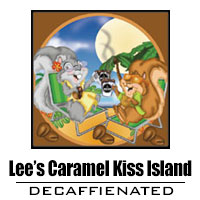


Writing is something that has to be enjoyed. And with gourmet tea gift, we have indeed enjoyed writing all that we know about it. We wish you also enjoyed yourself.
Another Great gourmet tea gift Article
The History of Coffee
The History of Coffee
Coffee was discovered in Eastern Africa in an area known as Ethiopia. A popular legend tells of a goat herder named Kaldi. One day he noticed his goats acting frisky after eating berries from a bush. Kaldi tried the berries. He found he had renewed energy. The news of this amazing fruit spread throughout the region. Monks started drying the berries to transport to distant monasteries. They reconstituted the berries by soaking them in water. They would eat the fruit and drink the liquid to provide stimulation for a more awakened prayer time. The berries were transported from Ethiopia to the Arabian peninsula and were first cultivated in Yemen. Then coffee travelled to Turkey where beans were roasted for the first time over fires. The beans were crushed and boiled in water, creating a crude version of the coffee of today.
Coffee arrived on the European continent through Venetian trade merchants. The catholics were totally against drinking coffee. In fact they thought the Pope should ban coffee, calling it the "Drink of the Devil'. However the pope had already become an avid coffee drinker. He liked it so much that he blessed it. Coffee houses spread quickly. Many great minds gathered in them for thought and creativity. In the 1700's coffee made its way to the America's by means of a French infantry captain. He travelled with a small plant. It was then transplanted to the Carribean Island of Martinique. There grew 19 million trees within 50 years. Coffee was declared the national drink of the colonized U.S. by Congress. Today coffee is a giant global industry employing more than 20 million people. This commodity ranks second only to Petroleum in its dollars traded worldwide. There are 4 billion cups consumed every year. Coffee is the worlds most popular beverage. In Brazil, over 5 million people are employed in cultivating and harvesting over 3 billion coffee plants. Sales of premium speciality coffees have skyrocketed. Sales have reached the multi-billion dollar level and increase annually. Well that is the history of coffee. It all started with a farmer wanting more energy. Even today most of the world wakes up to a cup of coffee to start thier day. I am one of those people who can't live without coffee, especially in the morning. Due to it's popularity, I am sure I am not the only one.
The History of Coffee
Coffee was discovered in Eastern Africa in an area known as Ethiopia. A popular legend tells of a goat herder named Kaldi. One day he noticed his goats acting frisky after eating berries from a bush. Kaldi tried the berries. He found he had renewed energy. The news of this amazing fruit spread throughout the region. Monks started drying the berries to transport to distant monasteries. They reconstituted the berries by soaking them in water. They would eat the fruit and drink the liquid to provide stimulation for a more awakened prayer time. The berries were transported from Ethiopia to the Arabian peninsula and were first cultivated in Yemen. Then coffee travelled to Turkey where beans were roasted for the first time over fires. The beans were crushed and boiled in water, creating a crude version of the coffee of today.
Coffee arrived on the European continent through Venetian trade merchants. The catholics were totally against drinking coffee. In fact they thought the Pope should ban coffee, calling it the "Drink of the Devil'. However the pope had already become an avid coffee drinker. He liked it so much that he blessed it. Coffee houses spread quickly. Many great minds gathered in them for thought and creativity. In the 1700's coffee made its way to the America's by means of a French infantry captain. He travelled with a small plant. It was then transplanted to the Carribean Island of Martinique. There grew 19 million trees within 50 years. Coffee was declared the national drink of the colonized U.S. by Congress. Today coffee is a giant global industry employing more than 20 million people. This commodity ranks second only to Petroleum in its dollars traded worldwide. There are 4 billion cups consumed every year. Coffee is the worlds most popular beverage. In Brazil, over 5 million people are employed in cultivating and harvesting over 3 billion coffee plants. Sales of premium speciality coffees have skyrocketed. Sales have reached the multi-billion dollar level and increase annually. Well that is the history of coffee. It all started with a farmer wanting more energy. Even today most of the world wakes up to a cup of coffee to start thier day. I am one of those people who can't live without coffee, especially in the morning. Due to it's popularity, I am sure I am not the only one. Understanding the sales process to close more salesAndre PlessisUnderstanding The Sales Process To Close More Sales
You may not have put much thought into it but if you are a business owner and sell products and/or services to consumers or/and businesses then you are a sales person. Have you spent enough time understanding the sales process and what it takes to close more sales for your business? If you havent this October Newsletter will help you understand the sales process, how your prospects think and how you can close more sales.
There are two things in your business you need to master and those are marketing and selling skills.
Most marketers dont give a lot of thought to the buying processes of their clients. Thats very unfortunate. Paying attention to the buying process can have a dramatic effect on your revenue. It is extremely important to understand that although people inquire about your products/services, it doesnt mean they are the ideal prospect. There are many reasons why people may not buy your stuff which has nothing to do with you.
Each and every one of us goes through some sort of buying process when we make a purchase decision. At times the process is long as when making a big purchase. At other moments it happens almost without thought when buying an inexpensive item. Sometimes we may be seeking information on a products or service but that doesnt mean we are ready to buy right away. May be we need to be convinced that we are making the right decision.
It is very important that early in the sales process you differentiate the prospect that is on the market to buy and the one WHO DOESNT KNOW WHAT HE WANTS. Dont spend much time on the second one; you will be wasting your time and energy.
Generally speaking, the buying process consists of four steps.
Do they really need it?
During this step, shoppers realize they WANT or MAY need something. They realize that they have a problem or a desire, and they choose to find a solution. If this need is strong enough chances are that they will make a quick decision and buy from you or your competition. If the need is not really there, they will just shop around and wont be making a quick decision. That decision could be made in a few months or may be never. It is extremely important that you identify the real prospect to the undecided shopper. It can be very frustrating to deal with those undecided people. You should focus your energy on the real buyers. I consider this stage interview the most critical part of any sales process. The interview is the stage where you try to get to know your customer's needs, concerns, issues, objections, and real desires. It's from the interview that you have enough information to determine how to present your products and services.
Information Search
Once the choice has been made to fill a need or want, the prospects begin to search for information in order to make the best buying decision that is in his/her best interest. Make sure you give all information necessary to help them make a buying decision. You should offer some way for the prospect to remember you, such as brochures and catalogs, a way to bookmark your site, newsletter etc.) Free samples, test drives, free report and other means of trial work extremely well to guide the prospect through the information search stage and onto the evaluation and purchase stages. In this particular state of the buying process make sure to educate the process as much as and make sure you differentiate your company from the competition.
In that particular stage you will need to do two things. Educate your prospect and create an interest.
When educating your prospect on your products/services, be sure to present reasons for them to buy. Remember...solve a need, problem, or improve a current situation. The Key: Give them reasons to buy.
Your recommendation shows the customer your personal efforts and interest in helping him. He will be able to compare your products and services to the competition, and see the difference (if there is any). This should bring out his final objections, giving you the opportunity to answer all his questions.
Your recommendation should be designed to relate value to your customer. Here is where your product or service begins showing logical and practical solutions to the customers problems, needs, and goals. This is where you lay out your plan of action and explain how the process will work for your prospect. This step will also uncover and give you the opportunity to handle objections.
Find out about their objections
Often the trial close will lead to objections. You might say, "So which program do you feel most comfortable with?" (That's a soft form of the trial close.) Your customer will probably respond with objections (e.g., price, features, delivery, no time, or no need). During this step, don't' try to counter the objections. Continue the interview and learn all you can about their objections and challenges. You need to help them make a decision and they need to be reassured they are making the right decision. Try to learn whether the objections are honest or made up because the prospect doesn't want to hurt your feelings, or genuinely isn't interested in buying at this time.
Handle objections
Your options are to rebuttal an objection, change your offer, or provide other incentives. But make sure you do the homework and actually follow up with the prospect. Occasionally, you will find an objection is legitimate and you really can't meet the prospect's needs. Be honest, wish him luck then walk away. Dont waste your time with undecided people who do not know what they want.
Evaluation
After your prospects have collected all the information they feel is necessary and you have answered all their objections, they begin to evaluate their options and narrow their choices until they finally pick the one thing that they are comfortable with, and that they can afford. This is the time to follow-up with your prospects. Is there additional information they need in order to choose your company? Did they have any issues with the free sample that can be corrected? Your presence during the evaluation stage is important, so do your best to retain customer contact information in order to offer any additional information the buyer might need.
Purchase
Once all the information has been evaluated, a purchase is made, and your customer walks hopefully happy.
Why people really buy.
People buy for their own reasons, NOT FOR YOURS. Until you know your customers reasons for wanting, or not wanting, to buy your product/service...you are in the dark! It doesnt matter how many reasons you give for believing your product/service is a great buy, they will mean nothing unless your customer has VERY GOOD reasons to buy from you. Customers face new challenges every day that can alter their needs for your products/services. The key is to stay in contact with your prospects...and ALWAYS ask questions to learn where they are in terms of needing your product/service.
If a prospect avoids making the decision to buy from you, its typically because they have no sense of urgency to buy or they may not be convinced that your products/services will solve a problem they have. Your challenge is to prove to the prospect that buying now is best for them and you must be able to offer support and real reasons why. What will they miss if they wait even one more day? What will they miss if they dont buy from YOU? Make sure you emphasize on the potential opportunities if they go ahead and get started on the program NOW. WHY is it important for them to buy now? In other words, whats in it for them? Remember...the reason a customer buys your product or service is because of what it can do for them. JUST TELL THEM.
Know Your Competition
We all have competition. When you call on a prospect, you will likely encounter a situation where the prospect knows your competitors. In order to sell all the reasons why YOUR product or service is best for the prospect...you need to know as much as possible about your competitors. This allows you to explain why your product/service is better than the rest to solve a specific need of your client.
Why is my product/service best?
In order to make a decision to buy your product and/or service, a buyer will need specific information about you, your company, your products, services, etc. Provide them with specifics on your reliability, special features of your products and services and where you stand in your industry. Tell a complete story of why they should buy from YOU rather than your competition. TESTIMONIALS ARE POWERFUL. CREDENTIALS ARE IMPORTANTL. If you belong to a specific organization such as BBB, it may help you tremendously close a deal.
What about those prospects that is not ready to buy?
Simply follow up regularly with them through direct mail, phone calls, or newsletters. That allows you to build credibility which you may not have been able to build earlier. Many individuals are not ready to buy right away but after, 6, 7, 8 follow up they may be ready.
Understanding each step in the buying process can help you structure your selling process and your marketing materials to cater to the prospects. Take the time to consider what your customer goes through when making the choice to buy, and alter your business accordingly. In doing so, you will increase your chances of making more sales.
In the sales profession you are the company, the product, the service. What you do and how you do it will impact your success. Perfect your sales skills by asking and answering questions, overcoming objections, and provide reasons to buy your products/services. Tell your story, create a need, solve a problem, handle follow-up procedures correctly and you will be on your way to great success.
Golden rule: PEOPLE BUY FROM PEOPLE THEY LIKE AND TRUST.
Andre Plessis
Author & Marketing Expert
SmartBizConnection
http://smartbizconnection.com
The Smartest Way To Grow Your Business!
If you think this article is valuable, please pass it on to your friends and colleagues.
If you have any question regarding this article please feel free to send an email at: andre @ smartbizconnection.com subject: Article
To advertise with us visit: http://smartbizconnection.com/advertise.htm or send an email to: andre @ smartbizconnection.com subject: Advertise
Got suggestions or comments?
Send them to us at: mailto: andre @ smartbizconnection.com subject: Comment/Suggestions
To submit an article send email at: andre @ smartbizconnection.com subject: Submit Article
This Newsletter was submitted By Andre Plessis -- Marketing Expert. Get your monthly dose of Email newsletter, marketing tips, promotion, by joining our free Newsletter "The Smartest Way To Grow Your Business": visit http://smartbizconnection.com.
Andre Plessis
Author & Marketing Expert
SmartBizConnection
If you think this article is valuable, please pass it on to your friends and colleagues.
If you have any question regarding this article please feel free to email me at: andre @ smartbizconnection.com subject: advertise
To advertise with us visit: http://smartbizconnection.com/advertise.htm
To submit an article send email at: andre @ smartbizconnection.com subject: submit article
Copyright 2003 - 2004 SmartBizConnection. All rights reserved.
Phone: (888) 872- 2285 / Direct: (818) 341- 2972 Sell at the top -- enjoy greater success!Frank Williams
As a former CEO of a good size industrial company, I always found it strange that I didn't have more salespeople call me directly. Did they know I always answered my own phone? Did they not intuitively understand that, at some point, I would be involved in any major buying decision? Did they not grasp that getting to know me and understand my thinking would be a smart move in closing any sales with my firm? And, to me, starting at the top seems to be the best place to begin any sales cycle, yet my phone rarely had salesman attached to the other end and many studies on sales techniques confirm this.
Would you be surprised to find out that more than seventy-five percent of high-level decision makers are involved early-on in any major buying process? A more shocking statistic yields that less than five percent of all salespeople talk to the high-level decision maker. Why is this?
Global Marketing, Inc. held discussions with many salespeople about this inhibitor to greater sales achievement. Lack of business knowledge, low confidence or no experience connecting with high-level decision makers is the most common feedback as to why these sales people don't start at the top. Global Marketing suggests that if you have these individuals in your organization - route them out fast or train them how to approach and close on high-level decision makers, or your competitor will!
Selling at the highest level in any account makes good selling sense. Calling on these top-level people means talking to someone who has the ability to say "yes" or "no" to your idea. Going straight to the top means shorter sales cycle, better treatment, and will create additional pull for your idea. Those that sell at the top usually find there is less competition because (as earlier stated) most salespeople are too intimidated to call on the top decision maker. And when was the last time you heard a top decision maker suggest that they don't have the budget for an idea they like.
Failure to call at a high level within a targeted business come with a variety of salespeople rationalizations. Many individuals we spoke to said they were afraid to go over the head of their lower-level contact in fear of offending them. Others stated they feel intimidated by the top level decision makers.
Other on-going ‘myths' surrounding senior level decision makers:
I'll never get by the screener to gain an appointment.
These people have more important things to do.
These are smart people with Yale or Harvard MBA's.
Most high-level decision makers hate salespeople.
Successful sales people I know don't buy-into these or other myths. Remember, that high-level decision makers did not reach the top by being aloof. Many organizations promote from within and these top people usually recognize the importance of meeting with key decision makers. Besides, in today's business, most organizations are flatter making the key decision maker more accessible. However, the bottom line for any solid sales approach is to bring something of value to the high-level decision maker - this will ensure you will always get their attention.
Working and connecting with high-level decision makers takes a practice and a willingness to plan your sales call. Recognize that you must understand how high-level decision makers operate. Typically, they are more direct. No long-winded chat-chat for these guys. They like to control meetings and are more strategic in their thinking and decision making. Something that may take lower-level contact months to decide may be acted on immediately by the high-level decision maker. They take measured risks and make calculated decisions, so don't waste their time by presenting canned presentations, or lack an understanding of their business -- usually these high-level decision makers are looking for you to make a difference in their business, not just make a deal.
As a young salesman, a person I came to respect gave me some sage advice -- "begin as you mean to continue". Have your salespeople start at the top. Your business will achieve more and your competitors will envy you.
ABOUT THE AUTHOR
Other valuable articles can be found at:
http://members.cox.net/glmarketing/glmarketing/index.htm
Featured gourmet tea gift Items
Mizner Estate Blend (DECAF) - 8oz.
 Escape away as you enjoy this stately coffee from the rich soils of Java. This Indonesian coffee has a clean, smooth full bodied taste with subtle rich overtones.
Escape away as you enjoy this stately coffee from the rich soils of Java. This Indonesian coffee has a clean, smooth full bodied taste with subtle rich overtones.
Price: 7.95
Lee's Caramel Kiss Island - 8 oz.

* A Portion of Proceeds Benefit Leukemia & Lymphoma Society *
Coffee with a caramel and chocolate kiss. Dedicated to Lee Frcek, cherished wife, mother and grandmother, who battled leukemia for thirteen and a half years. A portion of the proceeds from this coffee will be donated to the leukemia and lymphoma society. (read her story)
Price: 7.95
Lee's Caramel Kiss Island (DECAF) - 8oz.

* A Portion of Proceeds Benefit Leukemia & Lymphoma Society *
Coffee with a caramel and chocolate kiss. Dedicated to Lee Frcek, cherished wife, mother and grandmother, who battled leukemia for thirteen and a half years. A portion of the proceeds from this coffee will be donated to the leukemia and lymphoma society. (read her story)
Price: 8.45
Hawaiian Kona Extra Fancy - 8 oz.
 Enjoy a taste of the best hawaii has to offer with our pure kona gourmet coffee. This fascinating coffee is an exotic combination of floral aromas and creamy smoothness with just a whisper of chocolate.
Enjoy a taste of the best hawaii has to offer with our pure kona gourmet coffee. This fascinating coffee is an exotic combination of floral aromas and creamy smoothness with just a whisper of chocolate.
Price: 17.45
gourmet tea gift in the news
Take your time with a meal at Gourmet Junction - Joliet Herald News
Fri, 21 Nov 2008 10:07:30 GMT
Take your time with a meal at Gourmet Junction Joliet Herald News, IL - Owner Mary Ann Waldorf has created a destination that is part tea room, part deli, part gift shop. Above all else, though, it is a place where they know ... |
Holiday memories in the making - Kawartha Media Group
Fri, 21 Nov 2008 00:09:51 GMT
Holiday memories in the making Kawartha Media Group, Canada - 27, 8:30 to 10:30 am; tickets $10 - Celebrity Lunch: Guests will be entertained by an impressive lineup of celebrities, while enjoying a gourmet lunch in ... |
Labels: cafetiere expresso | caff rosto home coffee roaster | caffeinated coffee
















